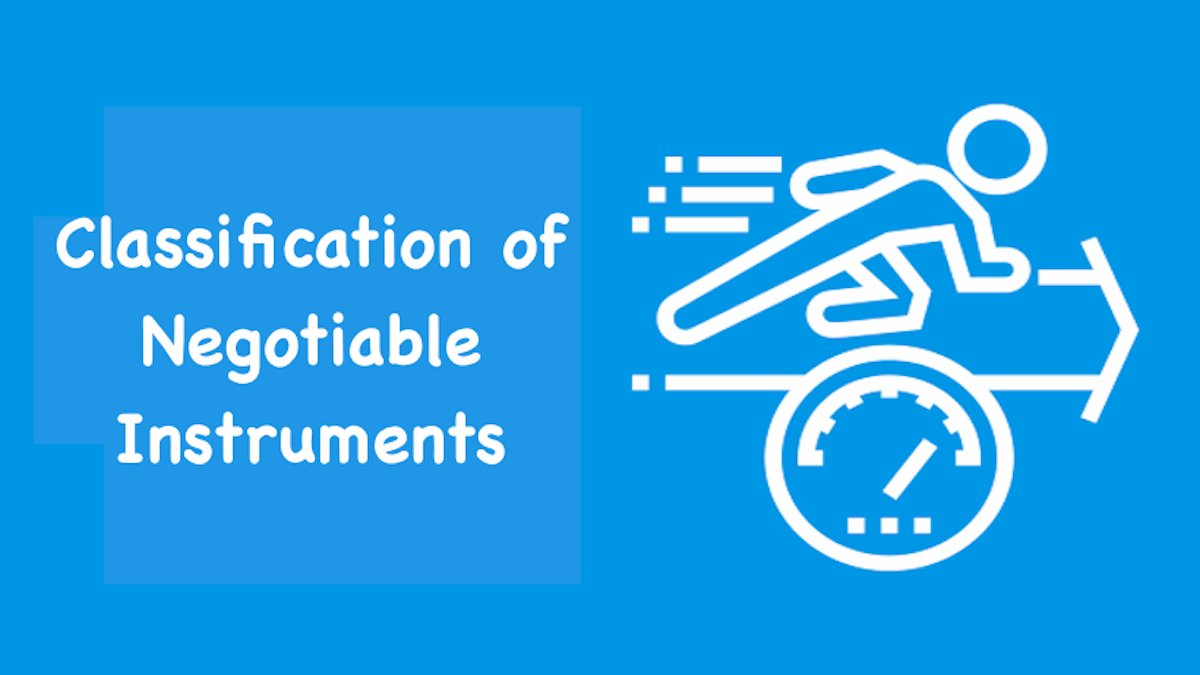Classification of Negotiable Instruments, One of the most important things to be kept in mind while studying Law is the concept of Negotiable Instruments. For this purpose, the types of negotiable instruments should be clearly understood by us. In this article we provide complete details for the Classification of Negotiable Instruments, Now check more details below…
We have seen that cheque is sometimes not crossed, sometimes it is crossed and sometimes it is written payable to the bearer. This brings us the need to classify negotiable instruments in to various types. Let us have a look on how the negotiable instruments are classified.
Classification of Negotiable Instruments
The basic types of negotiable instruments are as follows:
- Bearer Instrument ;
- Order Instrument ;
- Inland Instrument ;
- Foreign Instrument ;
- Demand Instrument ;
- Time Instruments.
Let us understand each of these types in some detail. The negotiable instruments may be classified as under:
1. Bearer Instruments:
Advertisement
A promissory note, a bill of exchange or a cheque is payable to bearer when it is expressed to be so payable, or the last endorsement on the instrument is an endorsement in blank. A person who is a holder of a bearer instrument can obtain the payment of the instrument.
2. Order Instruments:
A promissory note, a bill of exchange or a cheque is payable to order in which it is expressed to be so payable; or which is expressed to be payable to a particular person and it does not contain any words prohibiting transfer or indicating any intention that it shall not be transferable.
3. Inland Instruments:
A promissory note, a bill of exchange or a cheque drawn or made in India, and made payable for any person who is resident in India shall be deemed to be an inland instrument. Since a promissory note is not drawn on any person, an inland promissory note is one which is made payable in India. Subject to this exception, an inland instrument is one which is either:
- drawn and made payable in India, or
- Drawn in India upon some persons resident therein, even though it is made payable in a foreign country.
4. Foreign Instruments:
An instrument which is not an inland instrument is defined as a foreign instrument. To understand it in a broader way, we need to understand its essentials. The essentials of a foreign instrument include the following:
(i) it must be drawn outside India and should be made payable outside or inside India; or
(ii) it must be drawn in India and should be made payable outside India and drawn on a person resident outside India.
5. Demand Instruments:
A promissory note or a bill of exchange in which no time for payment is specified is an instrument payable on demand.
6. Time Instruments:
Time instruments are those instruments which are payable at sometime in the near future. Therefore, a promissory note or a bill of exchange payable after a fixed period, or after sight, or on a specified day, or on the happening of an event which is certain to happen, is known as a time instrument.
Must Read –
